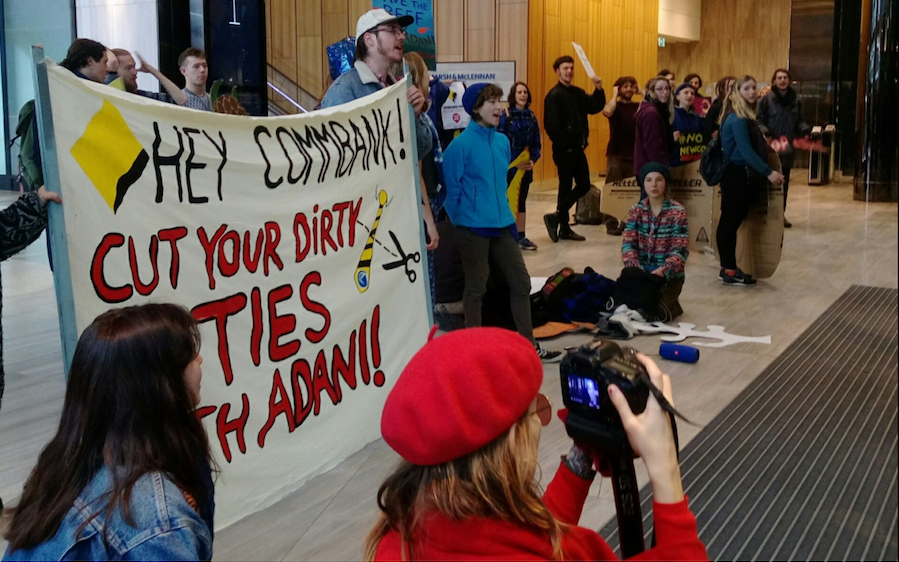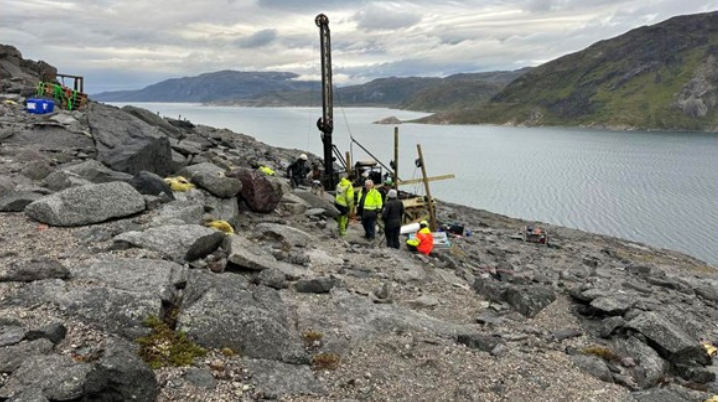#StopAdani protests surge in Australia

In just a few months, India’s Adani Group is set to start working on its $16bn Carmichael coal mine and rail project in Australia’s Galilee Basin, located in central Queensland.
But before construction begins, activist groups are making sure to continue to speak up against the plan which, they say, could potentially harm the Great Barrier Reef and vulnerable species including a lizard known as the yakka skink.
On June 14, members of Toowoomba StopAdani, backed by Ken Gover from the Queensland Greens, gathered outside the Clifford Gardens Shopping Centre demanding the Commonwealth Bank to stop funding the mine and to divest from fossil fuels.
The action comes following a News Corp story that revealed that a Commonwealth Bank account was used by Adani to pay a $1.6 million deposit to the Department of Natural Resources and Mines. The financial institution, however, had previously released a statement saying that in terms of the proposed Galilee Basin, their executives “have not been approached to provide finance for any project.”
The protesters, who were also reacting to declarations by India’s Energy Minister who stated earlier this week that the country has “sufficient coal capacity” to power itself without the Carmichael mine, were asked to stop rallying in the area.
#StopAdani @CommBank pic.twitter.com/n4pXDk7VT1
— Mara Bonacci (@marabonacci) June 13, 2017
Beset by legal woes, Adani faced a new step-back in March when Australia’s four biggest banks ruled out or withdrew funding from Carmichael, following a decision by Westpac to only fund new projects in existing, rather than new, coal basins.
Carmichael is one of the world’s largest thermal coal mines approved in recent years. In order to move forward with the project, Adani Group (NSE: ADANIENT) agreed to pay the state hefty royalties on the coal produced there. The company has also spent more than $120 million in legal fees to cut its way through the environmental snags that delayed the first phase of the mine.
Official figures estimate that the Carmichael mine will contribute $2.97bn each year to Queensland’s economy and has the potential to create 6,400 new jobs. The mine is expected to produce 60 million tonnes of thermal coal a year for export, which would fuel power generation for 100 million Indians.
More News
{{ commodity.name }}
{{ post.title }}
{{ post.date }}




3 Comments
Rachael Vincent
Correction: The Commonwealth Bank has not ruled out financing the mine.
The company has said under oath that it will only create the equivalent of 1464 full time jobs.
Scott
Total bunch of chumps these ignorant fools. If they’re truly concerned about the environment they should turn their lights out and power down their Macs. Australia generates over 80% of its electricity from coal. They should practise what they preach, otherwise they’re just another group of ill informed social crusaders unwilling to make the hard choices their ‘ideals’ demand. Hypocrites.
Kade Smith
“Both underground and open-cut coal mining can significantly impact the integrity of aquifers and groundwater-dependent ecosystems through dewatering, subsidence and contamination. In a semi-arid climate like the Desert Uplands, plants and animals depend on the availability of water and the ability to utilise water sources in order to survive and reproduce. Contaminated water and waste material from coal mines pose a threat to the surrounding terrestrial and aquatic habitats, as can loss of water. ……… The (Galilee) bioregion provides habitat for many threatened species of plants, mammals, birds, reptiles, and fish. It contains 77 mapped regional ecosystems, with two listed as ‘endangered’ and 26 defined as ‘of concern’1. This unique landscape contains two major catchments, the Burdekin and Lake Eyre Basin.” Once its gone …. its gone forever.